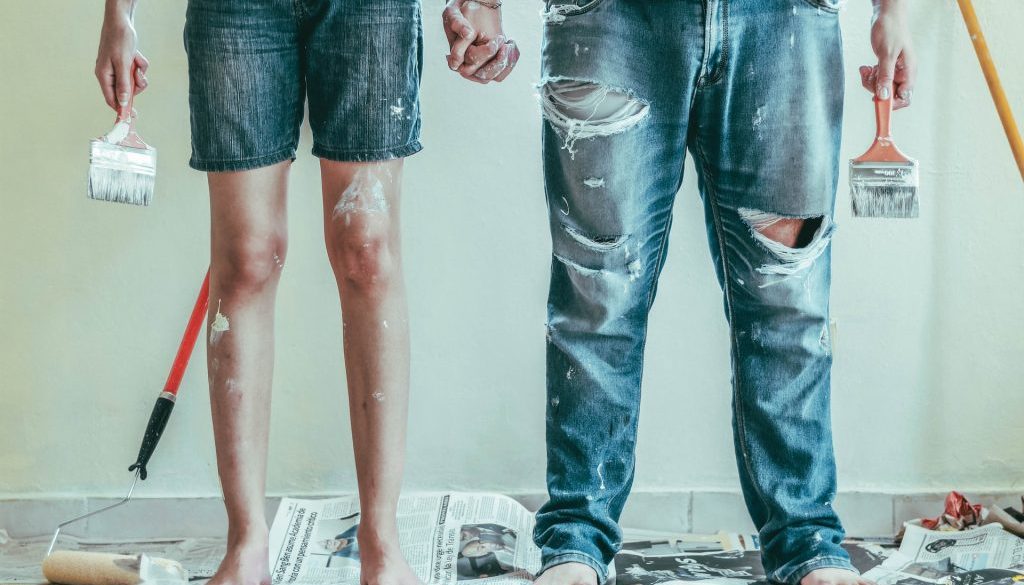DIY home renovation projects can be both exciting and challenging, as you work towards enhancing your living space and creating a truly personalised environment for your family. However, these projects often generate a considerable amount of waste, requiring careful management to ensure a clean, safe, and environmentally responsible renovation. Proper waste management not only keeps your work site organised and tidy but also contributes to reducing pollution, conserving natural resources, and achieving a sustainable outcome for your project.
To help you get started in the right direction, we’ll provide a comprehensive guide to efficient waste management for your DIY home renovation, offering tips and best practices to help you navigate this crucial aspect of your project. From planning and organising your waste disposal to selecting the appropriate skip size and partnering with a reputable waste management provider like Enviro Skip Hire, our guide will cover all the essential elements to successfully managing your renovation project’s waste.
As a result, you’ll be well-equipped to undertake your home renovation with confidence, ensuring a streamlined process that embraces both practical and environmental considerations. With careful planning, waste reduction strategies, and responsible waste disposal, your DIY home renovation project can be a shining example of clean, safe, and sustainable construction in action. So, let’s delve into the world of efficient waste management and discover how you can transform your home while remaining environmentally conscious every step of the way.
Planning for Waste Disposal in Your DIY Home Renovation
A well-thought-out waste management plan is a crucial first step in ensuring a successful and environmentally friendly DIY home renovation. Here are some important factors to consider when creating your waste management plan:
- Project Scope and Waste Types: Start by assessing the scale of your renovation project and identifying the types of waste materials you expect to generate. This analysis will help you estimate the volume of waste and inform your selection of the most appropriate disposal solutions.
- Waste Reduction Strategies: Consider implementing waste reduction strategies, such as ordering materials with minimal packaging, repurposing leftover supplies, and selecting reusable or recyclable materials to minimise the amount of waste your project generates.
- Waste Segregation: Plan for waste segregation from the outset of your project. Organise separate bins or containers for different waste types, allowing for more efficient disposal and potentially higher recycling rates.
Choosing the Right Skip Size for Your Renovation Project
Selecting the appropriate skip size is an essential factor for efficient waste management during your home renovation. Here are the most common skip sizes and their suitability for different renovation projects:
- Mini Skips (2-3 Yards): Ideal for small-scale renovations, such as bathroom or kitchen updates, mini skips can accommodate waste from minor demolition, packaging, and fixture removal.
- Midi Skips (4-5 Yards): Suitable for medium-sized renovation projects, such as significant kitchen or bathroom overhauls and minor structural alterations, midi skips provide ample space for mixed waste materials.
- Maxi Skips (6-12 Yards): Maxi skips are best for large-scale renovation projects, including significant structural changes, whole house renovations, and extensive landscaping work.
Consider the type and volume of waste your project will generate, and consult with a trusted waste management provider like Enviro Skip Hire to determine the most suitable skip size for your needs.
Eco-Friendly Practices for DIY Home Renovation Waste Management
Incorporating eco-friendly practices into your home renovation waste management plan can contribute to a sustainable outcome and reduce your project’s environmental impact. Here are some eco-friendly practices to consider:
- Repurposing Materials: Before disposing of waste materials, evaluate their potential for repurposing within your project. For instance, old bricks can be cleaned and reused, while wood can be sanded and repainted to create new furniture or décor.
- Recycling: Recycle as much of your waste as possible to reduce landfill impact. Segregate recyclable materials such as wood, metals, and plastics, and work with a waste management provider like Enviro Skip Hire that prioritises recycling and resource recovery.
- Donating: Unwanted belongings, fixtures, or materials that are in good condition can be donated to charity shops, local community groups, or schools. This practice ensures useful items find a new home and avoid the landfill, supporting a circular economy.
Working with a Trusted Waste Management Provider: Enviro Skip Hire
Partnering with a reliable waste management provider like Enviro Skip Hire can greatly enhance your DIY home renovation’s waste management process, offering a range of benefits:
- Tailored Solutions: Enviro Skip Hire provides customised waste management solutions, offering a wide selection of skip sizes and flexible hire periods to suit your project’s specific needs.
- Environmental Commitment: With a strong commitment to sustainability and an aim to recycle a high percentage of waste, Enviro Skip Hire ensures responsible and environmentally friendly waste management for your renovation project.
- Regulatory Compliance: Enviro Skip Hire is fully licensed and adheres to all applicable waste management regulations, offering you peace of mind that your waste is being handled responsibly and in compliance with the law.
Cutting Down Waste in Your DIY Home Renovation
Efficient waste management is a crucial aspect of a successful DIY home renovation, ensuring a cleaner, safer, and more environmentally responsible project from start to finish. By planning and organising your waste disposal, choosing the right skip size, incorporating eco-friendly practices, and partnering with a trusted, cheap skip hire in Stoke-on-Trent, like Enviro Skip Hire, you can embark on your project with confidence, knowing that you are taking all necessary steps to minimise waste and protect the environment.
Make your DIY home renovation an exemplary model of sustainable construction by embracing efficient waste management practices, contributing to a greener and more eco-friendly future for the building and construction sector.




